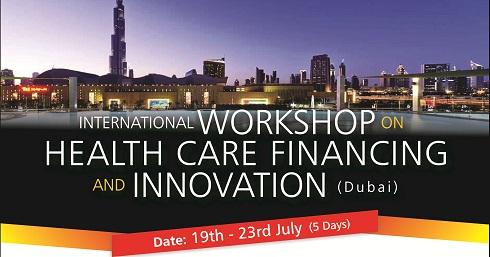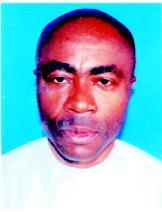Asthma is a chronic disease characterised by recurrent attacks of breathlessness and wheezing, which vary in severity and frequency from person to person. Symptoms may occur several times in a day or week in affected individuals, and for some people become worse during physical activity or at night.
Asthma attack
During an asthma attack, the lining of the bronchial tubes swell, causing the airways to narrow and reducing the flow of air into and out of the lungs. Recurrent asthma symptoms frequently cause sleeplessness, daytime fatigue, reduced activity levels and school and work absenteeism. Asthma has a relatively low fatality rate, compared to other chronic diseases.

Causes of asthma
The fundamental causes of asthma are not completely understood. The strongest risk factors for developing asthma are a combination of genetic predisposition with environmental exposure to inhaled substances and particles that may provoke allergic reactions or irritate the airways. These include: indoor allergens (for example, house dust mites in bedding, carpets and stuffed furniture, pollution and pet dander); outdoor allergens (such as pollens and moulds); tobacco smoke; chemical irritants in the workplace; and air pollution.
Other triggers can include cold air, extreme emotional arousal such as anger or fear, and physical exercise. Even certain medications can trigger asthma, including aspirin and other non-steroid anti-inflammatory drugs, and beta-blockers (which are used to treat high blood pressure, heart conditions and migraine).
Urbanisation has been associated with an increase in asthma. But the exact nature of this relationship is unclear.
According to WHO estimates, about 235 million people suffer from asthma globally. Although asthma cannot be cured, appropriate management can control the disorder and enable people to enjoy good quality of life. In addition, some children with milder forms of asthma outgrow their symptoms with age.
Asthma in Nigeria
According to the Chief Medical Director (CMD), University of Uyo Teaching Hospital, Professor Etete Peters, about 25 million Nigerians have been diagnosed of the respiratory condition known as asthma in Nigeria.
Professor Peters, who disclosed this on 8 May during the World Asthma Day held at the conference hall of the hospital, said the number was estimated to rise in the nearest future, as a result of industrialisation and better diagnosis facilities.
Speaking on the theme, “You can Control Your Asthma,” the CMD stated that asthma accounts for about one out of every 250 deaths recorded worldwide, stressing that the number of deaths arising from asthma disease is similar to that of killer diseases such as diabetes and cirrhosis.
The medical practitioner, who is also president of the Nigerian Thoracic Society (NTS), described asthma as “the chronic inflammatory disorder of airway, with a global prevalence ranging from one to 18 per cent.”
Types of asthma
The following types of asthma have been identified:
Child-onset asthma
Asthma that begins during childhood is called child-onset asthma. This type of asthma happens because a child becomes sensitised to common allergens in the environment, most likely due to genetic reasons. The child is atopic – a genetically determined state of hypersensitivity to environmental allergens.
Allergens are any substances that the body will treat as a foreign body, triggering an immune response. These vary widely between individuals and often include animal proteins, fungi, pollen, house-dust mites and some kind of dust. The airway cells are sensitive to particular materials, making an asthmatic response more likely if the child is exposed to a certain amount of an allergen.
Adult-onset asthma
This term is used when a person develops asthma after reaching 20 years of age. Adult-onset asthma affects women more than men, and it is also much less common than child-onset asthma. It can also be triggered by some allergic material or an allergy.
It is estimated that up to perhaps 50 per cent of adult-onset asthmas are linked to allergies. However, a substantial proportion of adult-onset asthma does not seem to be triggered by exposure to allergen(s); this is called non-allergic adult-onset asthma. This non-allergic type of adult onset asthma is also known as intrinsic asthma.
Exposure to a particle or chemical in certain plastics, metals, medications, or wood dust can also be a cause of adult-onset asthma.
Exercise-induced Asthma
If you cough, wheeze or feel out of breath during or after exercise, you could be suffering from exercise-induced asthma. Obviously, your level of fitness is also a factor – a person who is unfit and runs fast for ten minutes is going to be out of breath. However, if your coughing, wheezing or panting does not make sense, this could be an indication of exercise-induced asthma.
As with other types of asthma, a person with exercise-induced asthma will experience difficulty in getting air in and out of the lungs because of inflammation of the bronchial tubes (airways) and extra mucus.
Some people only experience asthma symptoms during physical exertion. The good news is that with proper treatment, a person who suffers from exercise-induced asthma does not have to limit his/her athletic goals. With proper asthma management, one can exercise as much as desired. Mark Spitz won nine swimming gold medals during the 1972 Olympics and he suffered from exercise-induced asthma.
80 per cent of people with other types of asthma may have symptoms during exercise, but many people with exercise-induced asthma never have symptoms while they are not physically exerting themselves.
Cough-induced asthma
Cough-induced asthma is one of the most difficult asthmas to diagnose. The doctor has to eliminate other possibilities, such as chronic bronchitis, post nasal drip due to hay fever, or sinus disease. In this case, the coughing can occur alone, without other asthma-type symptoms being present. The coughing can happen at any time of day or night. If it happens at night it can disrupt sleep.
Occupational asthma
This type of asthma is triggered by something in the patient’s place of work. Factors such as chemicals, vapours, gases, smoke, dust, fumes, or other particles can trigger asthma. It can also be caused by a virus (flu), moulds, animal products, pollen, humidity and temperature. Another trigger may be stress. Occupational asthma tends to occur soon after the patient starts a new job and disappears not long after leaving that job.
Nocturnal asthma
Nocturnal asthma occurs between midnight and 8am. It is triggered by allergens in the home such as dust and pet dander or by sinus conditions. Nocturnal or night-time asthma may occur without any daytime symptoms recognised by the patient. The patient may have wheezing or short breath when lying down and may not notice these symptoms until awoken by them in the middle of the night – usually between 2 and 4am.
Nocturnal asthma may occur only once in a while or frequently during the week. Night-time symptoms may also be a common problem in those with daytime asthma, as well. However, when there are no daytime symptoms to suggest asthma is an underlying cause of the night-time cough, this type of asthma will be more difficult to recognise – usually delaying proper therapy.
The causes of this phenomenon are unknown, although many possibilities are under investigation.
Steroid-resistant asthma (severe asthma)
While the majority of patients respond to regular inhaled glucocorticoid (steroid) therapy, some are steroid resistant. Airway inflammation and immune activation play an important role in chronic asthma. Current guidelines of asthma therapy have therefore focused on the use of anti-inflammatory therapy, particularly inhaled glucocorticoids (GCs).
By reducing airway inflammation and immune activation, glucocorticoids are used to treat asthma. However, patients with steroid-resistant asthma have higher levels of immune activation in their airways than do patients with steroid sensitive (SS) asthma.
Furthermore, glucocorticoids do not reduce the eosinophilia (high concentration of eosinophil granulocytes in the blood) or T cell activation found in steroid resistant asthmatics. This persistent immune activation is associated with high levels of the immune system molecules IL-2 (interleukin 2), IL-4 and IL-5 in the airways of these patients.
Management of asthma
Although asthma cannot be cured, appropriate management can control the disease and enable people to enjoy good quality of life.
Short-term medications are used to relieve symptoms. People with persistent symptoms must take long-term medication daily to control the underlying inflammation and prevent symptoms and exacerbations.
Medication is not the only way to control asthma. It is also important to avoid asthma triggers – stimuli that irritate and inflame the airways. With medical support, each asthma patient must learn what triggers he or she should avoid.
Although asthma does not kill, on the scale of chronic obstructive pulmonary disease (COPD) or other chronic diseases, failure to use appropriate medications or to adhere to treatment can lead to death.
Diagnosing asthma
Asthma diagnoses are based on three core components: a medical history, a physical exam, and results from breathing tests. A primary care physician will administer tests and, if you have asthma, determine your level of asthma severity as intermittent, mild, moderate, or severe.
Medical history
A detailed family history of asthma and allergies can help your doctor make an accurate asthma diagnosis. Your own personal history of allergies is also important, as many are closely linked to asthma.
Information about asthma symptoms is also useful. Be prepared to divulge when and how often they occur and what factors seem to exacerbate or worsen symptoms. Common symptoms and signs include:
· Wheezing
· Coughing
· Breathing difficulty
· Tightness in the chest
· Worsening symptoms at night
· Worsening symptoms due to cold air
· Symptoms while exercising
· Symptoms after exposure to allergens
It is also wise to make note of health conditions that can interfere with asthma management such as runny nose, sinus infections, acid reflux disease, psychological stress, and sleep apnoea.
It is often somewhat harder to diagnose young children who may develop their first asthma symptoms before age five. Symptoms are likely to be confused with those of other childhood conditions, but young children with wheezing episodes during colds or respiratory infections are likely to develop asthma after six years of age.
Physical exam
A physical examination will generally focus on the upper respiratory tract, chest, and skin. A doctor will use a stethoscope to listen for signs of asthma in your lungs as you breathe. The high-pitched whistling sound while you exhale – or wheezing – is a key sign of both an obstructed airway and asthma.
Physicians will also check for a runny nose, swollen nasal passages, and nasal polyps. Skin will be examined for conditions such as eczema and hives, which have been linked to asthma.
Physical symptoms are not always present in asthma sufferers, and it is possible to have asthma without presenting any physical maladies during an examination.
Asthma tests
Lung function tests, or pulmonary function tests, are the third component of an asthma diagnosis. To measure how much air you breathe in and out and how fast you can blow air out, physicians administer a spirometry test.
Spirometry is a non-invasive test that requires you to take deep breaths and forcefully exhale into a hose connected to a machine called a spirometer. The spirometer then displays two key measurements: Forced vital capacity (FVC) – the maximum amount of air one can inhale and exhale; and Forced expiratory volume (FEV-1) – the maximum amount of air exhaled in one second. The measurements are compared against standards developed for a person’s age, and measurements below normal may indicate obstructed airways.
It is common for a doctor to administer a bronchodilator drug to open air passages before retesting with the spirometer. If results improve after the drug, there is a higher likelihood of receiving an asthma diagnosis.
Children younger than five years of age are difficult to test using spirometry, so asthma diagnoses will rely mostly on symptoms, medical histories, and other parts of the physical examination. It is common for doctors to prescribe asthma medicines for four to six weeks to see how a young child responds.
Other tests
A “Challenge Test” (or bronchoprovocation test) is when a physician administers an airway-constricting substance (or something as simple as cold air) to deliberately trigger airway obstruction and asthma symptoms. Similarly, a challenge test for exercise-induced asthma would consist of vigorous exercise to trigger symptoms. A spirometry test is then administered, and if measurements are still normal, an asthma diagnosis is unlikely.
Physicians use allergy tests to identify substances that may be causing or worsening asthma. These tests cannot be used to diagnose asthma, but they can be used to understand the nature of asthma symptoms.
Doctors may also test for another disease with similar symptoms as asthma, such as reflux disease, heartburn, hay fever, sinusitis, sleep apnoea, chronic obstructive pulmonary disease (COPD), airway tumours, airway obstruction, bronchitis, lung infection (pneumonia), blood clot in the lung (pulmonary embolism), congestive heart failure, vocal cord dysfunction, and viral lower respiratory tract infection.
Tests may be administered for these ailments such as chest x-rays, EKGs (electrocardiograms), complete blood counts, CT (computerised tomography) scans of the lungs, gastroesophageal reflux assessment, and sputum induction and examination.
A new test using exhaled nitric oxide is being evaluated, since physicians are looking for a test that is more accurate than spirometry. Higher levels of nitric oxide are linked to higher degrees of asthma severity. The current drawback lies in the high cost of the test and the specialised equipment required measuring this chemical marker.
An asthma specialist can usually be avoided, as most primary care physicians are capable of diagnosing asthma. An asthma specialist may be necessary, however, if you need special asthma tests or have had a life-threatening asthma attack in the past. In addition, specialists can be of use, if you need more than one kind of medicine or higher doses of medicine in order to control your asthma, if you have overall difficulty controlling asthma, or if you will be receiving allergy treatments.
Treatment for asthma
Asthma is not so much “treated” as it is “controlled”. As a chronic, long-term disease, there is no cure. However, there are tools and medicines to help you control asthma as well as benchmarks to gauge your progress.
The peak flow meter
A peak flow meter is a simple, small, hand-held tool that can help you maintain control of asthma by providing a measurement of how well air moves out of the lungs.
After blowing into the device, the meter reveals your peak flow number. A physician will indicate how often to test, as well as how to interpret the result to determine the amount of medication to take. Some people record scores every morning, while others use the peak flow meter intermittently.
Often, each test with the peak flow meter will be judged against your “personal best” peak flow number (found during 2 to 3 weeks of good asthma control). If peak flow tests begin to decline – even before other symptoms are present – it may indicate a looming asthma attack. After taking asthma medication, the peak flow meter can be used to test the effectiveness of drug therapy.
Good control
Asthma is considered “well-controlled” if:
· Chronic and troublesome symptoms (coughing and shortness of breath) are prevented and occur no more than two days per week.
· There is little need for quick-relief medicines or they are needed less than two days per week.
· You maintain good lung function.
· Your activity level remains normal.
· Your sleep level remains normal and symptoms do not wake you from sleep more than one to two nights per month.
· You do not need emergency medical treatment.
· You have no more than one asthma attack each year that requires inhalation of corticosteroids.
· Your peak flow stays above 80 per cent of your personal best number.
These benchmarks can be obtained by working with a doctor and avoiding factors that can make your asthma flare up. Also be sure to treat other conditions that may interfere with asthma management.
Good control also means avoiding things that trigger asthma or asthma symptoms such as allergens. This may mean limiting time spent outdoors when pollen levels or air pollution levels are highest and limiting contact with animals. Asthma linked to allergies can also be suppressed by getting the necessary allergy shots.
Preventive check-ups
Part of good asthma control is seeing a doctor every two to six weeks for regular checkups until it is under control. Then checkups may be reduced to once a month or twice a year.
It is a good habit to keep track of asthma symptoms and attacks and diagnostic numbers such as the peak flow measurement. Doctors and nurses will ask about these and about daily activities, in order to gauge the status of your asthma control.
Medicine
Medication for asthma is broadly categorised as either quick-relief medicine or long-term control medicine. Reducing airway inflammation and preventing asthma symptoms is the goal of long-term control medicines, where as immediate relief of asthma symptoms is the goal of quick-relief or “rescue” medicines.
Medications can be ingested in pill form, but most are powders or mists taken orally using a device known as an inhaler. Inhalers permit medicines to travel efficiently through the airways to the lungs.
Inhaler
Medication may also be administered using a nebuliser, providing a larger, continuous dose. Nebulisers vaporise a dose of medication in a saline solution into a steady stream of foggy vapour that is inhaled by the patient.
SMART (Single Inhaler Maintenance and Reliever Therapy) is better for the relief and preventive treatment of asthma symptoms in adults, compared to standard therapy, researchers reported in The Lancet Respiratory Medicine (March 2013 issue). SMART refers to using ICS (corticosteroid) plus LABA (long-acting â2 agonist) in one inhaler.
Long-term control
Long-term control medicines are taken every day and are designed to prevent asthma symptoms such as airway inflammation. Inhaled corticosteroids are the most effective long-term control medicine – the best at relieving airway inflammation and swelling. They are usually taken daily to greatly reduce the inflammation that initiates the chain reaction of the asthma attack.
Even if taken every day, inhaled corticosteroids are not habit-forming. However, the medicines do have side effects such as the mouth infection known as “thrush”. Thrush occurs when the corticosteroids land in your throat or mouth. Spacers or holding chambers have been developed to help avoid this. Thrush can also be avoided by rinsing the mouth out after inhalation.
Inhaled corticosteroids also increase the risk of cataracts (clouding of the eye’s lens) and osteoporosis (weakening of the bones), if taken for long periods of time.
There are other long-term control medicines available that doctors may prescribe. Most of them are taken by mouth and are designed to open the airways and prevent airway inflammation. Examples include inhaled long-acting B2-agonists (used with low-dose inhaled corticosteroids), leukotriene modifiers, cromolyn and nedocromil, and theophylline.
Quick-relief medicines
Quick-relief medicines relieve asthma symptoms when they occur. The most common of these are inhaled short-acting B2-agonists – bronchodilators that quickly relax tight muscles around the airways, allowing air to flow through them.
The quick-relief inhaler should be used when asthma symptoms are first noticed, but should not be used more than 2 days a week. Most people carry the quick-relief inhaler with them at all times. Quick-relief medicines usually do not reduce inflammation and therefore should not be used as a replacement for long-term control medicines.
Pregnant women
Proper asthma control is necessary for pregnant women, in order to ensure a good supply of oxygen to the foetus. Babies born of asthmatic mothers have a higher chance of premature birth and lower birth weight. For pregnant women, the risks associated with having an asthma attack outweigh any risks associated with asthma medicines.
Vitamin D may reduce asthma symptoms
Researchers from King’s College, London, have discovered how vitamin D can reduce asthma symptoms. Catherine Hawrylowicz and team explained in the Journal of Allergy and Clinical Immunology (May 2013 issue) that their findings may offer a new way of treating the debilitating and usually chronic condition.
Asthma patients are currently prescribed steroid tablets, which may have harmful side effects. There is a type of asthma, however, that is resistant to steroid therapy. Patients with this type are susceptible to severe and often life-threatening asthma attacks.
The scientists found that people with asthma have higher levels of IL-17A (interleukin-17A). IL-17A is part of the immune system that protects the body against infection. However, this natural compound also worsens asthma symptoms. Large amounts of IL-17A can reduce the clinical effects of steroids.
The team found that asthma patients who were on steroids had the highest levels of IL-17A. They also found that vitamin D significantly lowers IL-17A production in cells. Hawrylowicz believes vitamin D could be a safe and useful add-on treatment.
Non-medical treatments
Some people treat asthma using unconventional alternative therapies, but there is little formal data to support the effectiveness of these methods. There is research, however, that has found acupuncture, air ionisers, and dust mite control measures, to have little or no effect on asthma symptoms or lung function.
Evidence is inconclusive to support or reject osteopathic, chiropractic, physiotherapeutic, and respiratory therapeutic techniques. Homeopathy may mildly reduce the intensity of symptoms, but this finding is not robust.
It is also wise to make note of health conditions that can interfere with asthma management such as runny nose, sinus infections, acid reflux disease, psychological stress, and sleep apnoea.
It is often somewhat harder to diagnose young children who may develop their first asthma symptoms before age five. Symptoms are likely to be confused with those of other childhood conditions, but young children with wheezing episodes during colds or respiratory infections are likely to develop asthma after six years of age.
Report compiled by Temitope Obayendo with additional information from: Global Initiative for Asthma and medicalnewstoday.com






























